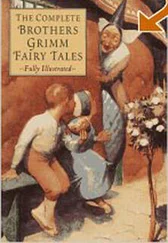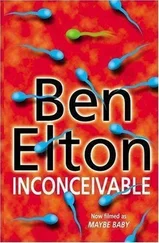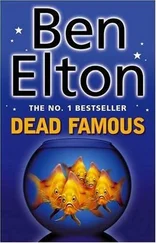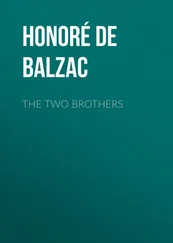‘You didn’t die?’ he almost croaked. His mouth suddenly dry and his tongue sticky. Speaking in English again out of habit, in a daze, only half-conscious of speaking at all.
‘No,’ she replied in English, ‘I didn’t die.’
Then a beat. The tiniest of pauses. A flicker of what looked very like suspicion flashed across her face.
‘But you knew that, Otto,’ she said, ‘you replied to my letter.’
‘Yes… yes, of course,’ he stammered.
So his first instinct had been right after all. She was alive! Once more she was breathing the very same air as him. Seventeen years of pain, longing and regret were suddenly and shockingly at an end.
He had been so sure she was dead. So sure it would be Silke.
Dagmar stepped towards him, deftly avoiding the scurrying people that divided them. With each step appearing more familiar to him. Her movements still graceful as of old, she even managed to wear her dull and threadbare suit with a flash of style.
‘Won’t you hug me, Ottsy?’ she said, standing before him. ‘Or don’t you care to any more?’ And then a smile, her smile. The lips more lined and the skin around them thinner but Dagmar’s smile nonetheless and enchanting still. ‘Have I grown too ugly for a kiss?’
‘You Dagmar, ugly?’ he whispered. ‘Never.’
Stepping forward once again, he enfolded her in his arms.
And in the moment it took him to take hold of her, she was transformed. His Dagmar once more, the loveliest girl in Berlin, just as she had always been. He had only to blow away the dust of seventeen years and there she would be again. Dagmar Fischer. Princess. The woman who had owned his heart since he was a boy.
The stuff of dreams. Of fairy tales.
Tightly they held each other. As if fearful that hidden hands were threatening to tear them apart.
Otto wondered if he was going to faint, a sensation he had never experienced before. He felt levitated. Floating. Outside and above himself, watching the scene play out below. It was heady and intoxicating. He felt drunk.
She was in his arms once more .
Her hair again upon his face.
Her ear close to his lips.
Just exactly as it had been in the very moments when he had last seen her. At the station, when he went away. Then, as now, there were people all around, travellers hurrying back and forth, German voices on the tannoys announcing arrivals and departures. A coffee store and vending machines. It was as if the two of them had stood still while time had moved on. Frozen in each other’s arms from 1939 to 1956 while the world hustled and bustled around them. The greatest war ever fought had come and gone. Empires had fallen and others had risen up. The single most terrible crime in all history had been perpetrated and now the places of those murders had become museums. Scientists were planning to place objects in orbit and swing bands were giving way to young men with greased hair and guitars.
And through all that and more, Otto Stengel had held Dagmar Fischer close in his heart. And now once more he held her in his arms. Time had indeed stood still.
And he had been so certain that she was dead.
Further English Conversation
Berlin, 1940
ALL DAY LONG Frieda had been seeing patients in the little ‘surgery’ she now conducted from a desk she had set up in her own bedroom. The tiny guest room she had previously used for this purpose was now occupied by Herr and Frau Katz the chemists and their grown-up daughter. The twins’ old room had become home to her parents. There was a middle-aged spinster lady named Bissinger sleeping on the couch in the living room, and a widower called Minkovsky on cushions on the floor.
The problem of accommodation for Jews was becoming more acute each day, the government having introduced an ordinance as cruel as it was vague. It was to be left up to local residents themselves to decide how long they were prepared to ‘tolerate’ Jews in their midst. This meant that Jews could be turfed out of their homes on a whim, either through sheer cruelty or more often simply because a party official wanted to steal their home.
Frieda was even worried for her own apartment. The fact that it was now so full, coupled with the constant stream of patients coming to her door, had begun to cause tension with her neighbours. Up until now, relations had been good; the Stengels had, after all, lived there for twenty years and at some point Frieda had done almost everybody in the building a favour. Wolfgang used to play music at their children’s birthday parties.
Now, however, tension was growing. There were whisperings that the Stengel place had turned into a Jewish ghetto. There were also complaints about the risk of infection caused by the flow of sick people making their way up the building. Most of all people resented the lift being used by so many outsiders. For months there had been angry mutterings about how the tiny lift always seemed to be on its way up to the sixth floor, and that when one did manage to summon it, it was unpleasant to share with sick, scared and pitiable Jews.
Eventually some people on a floor below Frieda’s had put up a sign saying that the lift was for the use of residents only. This, however, was an unsatisfactory solution, since of course other tenants had guests whom they wished to be able to visit them without using the stairs. The next sign put up said simply ‘No Jews’, but again this did not work because Frieda was a legal tenant and continued to contribute her share of the communal running costs. Eventually it was decided that the sign should say that no Jews excepting current tenants were to use the lift.
Frieda found the use of the word ‘current’ ominous.
So far the situation had been left at that but nobody was satisfied with it. The sight of the elderly, the infirm and in particular of sick, undernourished children struggling up six flights of stairs was upsetting to the other tenants and Frieda knew that the next stage would be that she would be told her patients could no longer attend her surgery. She was currently trying to stave off this eventuality by making house calls wherever possible. This necessitated her running all over Friedrichshain, which was of course absolutely exhausting.
Frieda had arrived home after completing another gruelling day, hoping perhaps to have a moment when she could forget her troubles. A quiet bath even. Unfortunately she had forgotten that her English conversation group was meeting that evening and despite all the group rules to the contrary, trouble was all any of them seemed able to discuss.
The problem of food was becoming as serious as shelter. With the coming of war, rationing had begun in real earnest.
‘And of course we get so many fewer coupons than anybody else,’ Frau Leibovitz almost wailed. ‘It’s so dastardly to issue us with scarcely enough food to live and yet just enough not to die. We are all withering and wasting away.’
‘Some people are saying that they intend to shoot us in the end,’ Herr Tauber said. ‘Ha! Shoot what? We’re too thin to make a decent target.’
Frieda’s father made his comment in German but Frieda let it go. Her parents were only a part of the group anyway because it took place in what was now their home, and besides which the incentive to improve people’s English was now much diminished. With Germany having conquered most of Europe there was no longer any chance of emigrating anyway.
‘Can you believe they won’t let us in the air-raid shelters?’ Frau Leibovitz complained. ‘Hoping the English will do their dirty work for them, I suppose.’
‘The English are finished,’ her husband said. ‘They’ll get their necks wrung like a chicken, just like the French said.’
Читать дальше












